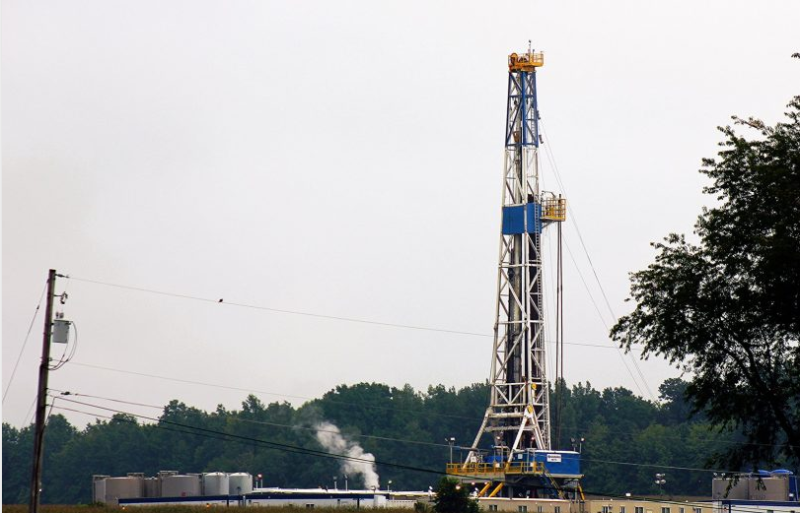
Hydrocarbons have far greater benefits to human prosperity than detriments. The UK is lucky to have abundant shale gas and developing it will help the overall economy as well as many left behind areas. It is only by increasing UK and US gas production and exports, thus giving European nations a choice of gas suppliers, will the world be able to restrain Putin.
Post Segments
Natural advantages
Levelling up
Strategic importance
Fracking is not new
Adapt to deal with side-effects.
The side-effects of not fracking – blackouts, brown outs and gas rationing.
Keeping the UK’s green promises
Conclusion
If we discovered gold in Lancashire there would be little hesitation in mining it, even though the landscape would be turned into a massive hole – few would care. And in the 1970’s had we found oil, black gold, in the same area, few would have hesitated before drilling an oil well. But for some reason finding gas in the 2020s is seen as something that we should ignore and leave in the ground. But this is wrong for many reasons:
Natural advantages
Britain is lucky to have hydrocarbons: coal, oil and gas. Not all countries do. Japan for instance is a G7 country with little to no hydrocarbon reserves and imports around $65 billion worth of crude oil, $42 billion worth of gas and $22.5 billion of coal every year. Germany has some hydrocarbons, mainly poor-quality coal, but still needs to import $38 billion of crude oil, $32 billion worth of gas and $22 billion of refined oil and $5 billion worth of coal annually. The UK really doesn’t realise how lucky it is. There are over 100 countries with no hydrocarbons and another 75 with very small hydrocarbon reserves. The forty countries with ample hydrocarbons should not be leaving them in the ground.
It was Britain’s coal – an intense store of energy that allowed it to industrialise, driving up the nation’s wealth and improving the country’s standard of living above any other country in the early 1800’s. And yet today’s population has forgotten what a blessing hydrocarbons can be. Gas powers our electricity – especially when the wind drops; gas heats our boilers, hot water and homes; gas powers our factories burning efficiently to release about 90% of its energy and to a high heat to transform substances; and along with other hydrocarbons is an ingredient in many common manufactured products, including pharmaceuticals, waxes, plastics, tars, carbon fibre, clothing, trainers, and industrial chemicals. Even the renewable industry relies on hydrocarbons: solar panels require plastics; wind turbines require steel, fibreglass, resins, hydraulic oils and concrete bases – all are made using hydrocarbons; even Blue Hydrogen is made from methane – natural gas.
It should be no surprise that Sir Jim Ratcliffe, Founder and Chairman of INEOS, a British multinational chemical company, has applied for fracking licences in the UK. INEOS have surveyed the UK and believes that shale gas reserves are as plentiful here as it is in parts of the US. The US became the largest producer of oil and gas in the world in 2018.
This is an area where the UK has both the natural resources, the technology and the investment funds to develop a very successful industry but instead the UK Government is giving subsidies to industries where the UK doesn’t have a natural advantage – for example solar farms.
Levelling up
Reopening UK fracking sites could be a serious levelling up opportunity. Gas doesn’t just provide power for reliable electricity generation and domestic heating but is also a source of inputs for chemical production which could encourage reshoring of chemical industries and a high heat source for other industrial processes. This means jobs. Manufacturing jobs as well as in the fracking industry. But bizarrely, Michael Gove, until recently the UK’s Secretary of State for Levelling Up, blocked a plan for a fracking site in South Yorkshire on the rather middle-class grounds that a 3 metre high fence might spoil the view. This seems like an even stranger decision when you consider that many views in the UK’s formally ‘green and pleasant land’ have already been spoilt by solar farms and wind turbines. Solar farms are particularly egregious if you review the very small amount solar contributes to UK electricity production each day or even each year. Today, 5th July, Gas is suppling 53.5% of UK electricity, nuclear is supplying 16.5%, wind 8.9%, biomass 6.9%, while solar isn’t listed. And I reiterate it is early July – the peak of the English summer.
According to UK Electricity, solar electricity production in the UK has only hit a high of 4,000 Megawatts twice in the last 5 years. At least wind turbines contribute – albeit spasmodically. Over the last 5 years wind has bounced between just under 14,000 megawatts to just above zero, while gas is almost the opposite of solar – rarely dropping below 4,000 megawatts and regularly producing more than 20,000 megawatts.
If ‘levelling up’ involves increased manufacturing, this will also require reliable fuel – that means either gas directly or gas converted to electricity. Visit any developing nation where brown outs are common and you will see how industry, services, and tourism struggle without reliable power. Wind power would be useable for industry, if – when the wind stopped blowing in the Thames Estuary, it started to blow on the west coast of Scotland, but the UK electricity production websites show that this is generally not the case. Wind is all or nothing. In the past 24hours it has dropped from 9.5k to 2.5k megawatts.
Levelling up isn’t just about ‘the north’, both the East and the west midlands are also sitting on potential shale gas reserves, as are the areas outside Glasgow, in southern Wales, and in eastern Kent. All of these areas could use a boost to their economies – why would the UK Government choose not to develop one of its natural resources in areas that need development?
Strategic importance
There is of course a much more pertinent strategic reason for developing UK shale gas – Russia. Right now, Western Europe is at the mercy of Putin’s Russia because the engine of the EU – Germany, decided to rely on Russian coal, oil and gas imports. Without, it would appear, ever asking the all-important question of ‘What could possibly go wrong?’
Now we know what could go wrong. Putin can invade whoever he likes enriched by German purchases of his hydrocarbon resources. Surely it would be better for the world in general, and the UK in particular, if German gas purchases were enriching the UK instead? Diversity of suppliers is fundamental to ensuring continuity of supply as well as providing the ability to cease purchasing from a supplier if there is a conflict or even a war. This should have been obvious, but it looks like the Germans didn’t bother to look their gift horse in the mouth.
And the UK shouldn’t be too smug about Germany – although the UK’s largest hydrocarbon supplier is Norway, our ‘green’ electricity is reliant on China for both solar panels and wind turbines – even those turbines provide by Danish companies are generally ‘made in China’.
Admittedly, there could be a strategic benefit in not developing our gas if, when the world has run out of hydrocarbons, the UK is the last country with untapped supplies. But in a future world with little gas, it is likely that a more powerful country would simply invade us and take our gas. Alternatively, if fusion energy has been developed in the future, then the UK’s untapped gas reserves may be worthless and so leaving them in the ground becomes a wasted opportunity. It is always better to sell into a rising market than to miss the peak and find your assets are worthless.
Fracking is not new
All gas producers frack. They do it when output drops in a mature oil or gas field to get production up again. Some wells release oil and gas easily, others require breaking the rock to release the oil and gas, others require injecting the rock to get the oil and gas out. Fracking, Hydraulic Fracturing, is the third type where water and sand are injected at high pressure into shale to create cracks that release gas or oil and brine. Fracking has been around since the 1860’s but the process has improved immeasurably since then. And it was President Ford in the 1970s who promoted fracking’s use during the original OPEC oil price shocks, although it was only in 2018 that the US became the world’s largest oil and gas producer – a title previously held by Russia. While OPEC+ countries were again trying to force up prices by limiting production, the higher prices encouraged US shale gas producers to increase their production. Ford’s hope that the US would be free from foreign hydrocarbon imports, and consequent foreign control over US prices, had finally come true.
Adapt to deal with side-effects.
Fracking is not without issues, but these issues can be managed. A moratorium on fracking in the UK was introduced in 2019 due to the earthquake risk but there is no reason to believe that engineers couldn’t overcome this risk. The two earthquakes thought to have been caused by the Cuadrilla fracking site measured only 2.3 and 1.5. This magnitude of quake may cause something to fall off a shelf but that is about it. Apparently, the UK gets about 15 earthquakes of 2.3 magnitude every year and few people notice.
It is also important to manage the contaminated water that comes out of the well. A lot of scare stories about contaminated water have been publicised to discourage fracking in the UK. As well as stories that tap water would catch fire. However, tap water in the UK generally comes from a water utility company not from reservoirs or rivers. Water companies go to great lengths to remove contaminants from the water – many are much worse than methane. Polio for example was recently found in London water yet there were no scare stories about the safety of drinking it. There have also been stories that the wastewater that comes out of a fracking well is radioactive, it isn’t.
Other people have complained that fracking uses too much water – although not a commodity generally considered to be in short supply in the UK. However, Fracking uses less water than farming and fracking is widely used in US states such as Oklahoma where water is scarer than in the UK. If Oklahoma can find enough water, we probably can too.
It is highly likely that all of the anti-fracking scare stories are either simply basic human fear of innovation (surprisingly common throughout history), or stories spread by vested interests who have the most to lose from an energy independent UK. The Centre for European Studies found that the Russian government has invested €82 million in NGOs campaigning against shale gas. The former Secretary General of NATO, Anders Fogh Rasmussen, said the Russians, as part of a sophisticated disinformation operation, ‘engaged actively with so-called non-governmental organisations — environmental organisations working against shale gas — to maintain Europe’s dependence on imported Russian gas.’
The side-effects of not fracking – blackouts, brown outs and gas rationing.
While I am very pro the development of Small Nuclear Reactors, the lead time for these to dominate UK electricity production is at least ten years away. As is the time it will take to replace the UK’s present fleet of ICE cars with electric cars. But neither of these developments will replace the hydrocarbons needed for industrial uses including: pharmaceuticals; hospital equipment; mobile phone casings; computers; plastic containers for household chemicals such as detergents as well as for making detergents; containers for food stuffs such as milk and butter; rubber for car tyres, window sealants, dishwasher sealants; even trainers and Lycra and makeup. I could seriously write 1000 words just listing products made using hydrocarbons.
Nor is electricity likely to replace diesel for trucks, or refrigerated trucks, or heavy mining vehicles, or farm machinery. Electricity and battery technology are also unlikely to replace jet fuel. Hydrogen might replace diesel or jet fuel. But at the moment hydrogen is made from methane (CH4) – so we still need the gas until we find a way to produce green hydrogen commercially.
And of course, in the UK most houses and hot water are heated by gas boilers. This is still the most efficient and practical way to heat a house or an apartment in the city. Ground source heat pumps need more ground than is found in the garden of a city terrace. And as for the numerous newly finished high-rise apartments blocks in London – air source heat pumps require yet more electricity and well insulated buildings to work. Unfortunately, many high-rise buildings in London are waiting to have their insulating, but highly flammable, cladding removed.
On the subject of high-rise buildings, cement production also requires hydrocarbons as does the steel reinforcing inside concrete pillars and floors as does the steel framework of high-rise buildings.
The UK must also take seriously the problems that would be created if Russia decides to stop selling its hydrocarbons to its enemies – aka The West. Russia has supplied about 10% of the UK’s total oil and gas product imports (5yr average by value). Norway our largest supplier provides about 37%, and the US supplies just over 10%.
Russia is also the UK’s largest import supplier of refined petroleum, in 2021 we imported 5.7 million tonnes of product code 2710 Petroleum oils and oils obtained from bituminous minerals (excluding crude) from Russia. During the last 5 years Russia has supplied between 15% and 26% of UK refined petroleum imports.
So what happens if they embargo sales to the UK – petrol rationing? Probably not for us, but for the poorer nations that we will be able to out-bid on the international markets. But other Western nations, such as Germany, the Netherlands, Poland, and South Korea, are much more reliant on Russia for their oil, coal and gas. Shortages in these countries will push up prices for everyone.
Keeping the UK’s green promises
Fracking should not be viewed as anti-green. Natural gas is a much cleaner fuel than coal. The UK’s massive reduction in CO2 emissions since 1990 have mainly come from gas fuelled electricity production replacing coal-fired electricity production; by better landfill management reducing methane emissions; and by outsourcing UK manufacturing to Germany and China.
Gas is a bridging fuel from high CO2 emitting coal fired electricity to zero emission nuclear power. But with the developing world increasing their fossil fuel usage, and with the world’s largest CO2 emitter, China, and the 4th largest, India, both bound by their Paris Commitment to continue to increase CO2 emissions until 2030, the UK, already responsible for only 1% of global emissions, will find its proportion of global emissions falls by 2030 even if it changes nothing, simply because the rest of the world’s total emissions are increasing. And this is a good thing. Preindustrial living standards due to shortages of fuel in the developing world may be quaint for Western tourist who get to return to their cars, heaters, washing machines, hospitals and supermarkets when the holiday is over, but are appalling living conditions for the undeveloped worlds’ populations. Not just China and India, many countries could improve their standard of living if they had access to adequate supplies of low cost fossil fuels. It is almost decadent of the UK to be considering keeping their shale gas in the ground.
Conclusion
It is economically sensible to develop a natural resource especially if it also makes the UK energy independent or better still a net energy exporter while also providing power and inputs to increase local industrial production. The world will need hydrocarbons for a long time. Energy is not just about petrol or cars. We really do need to get fracking.







